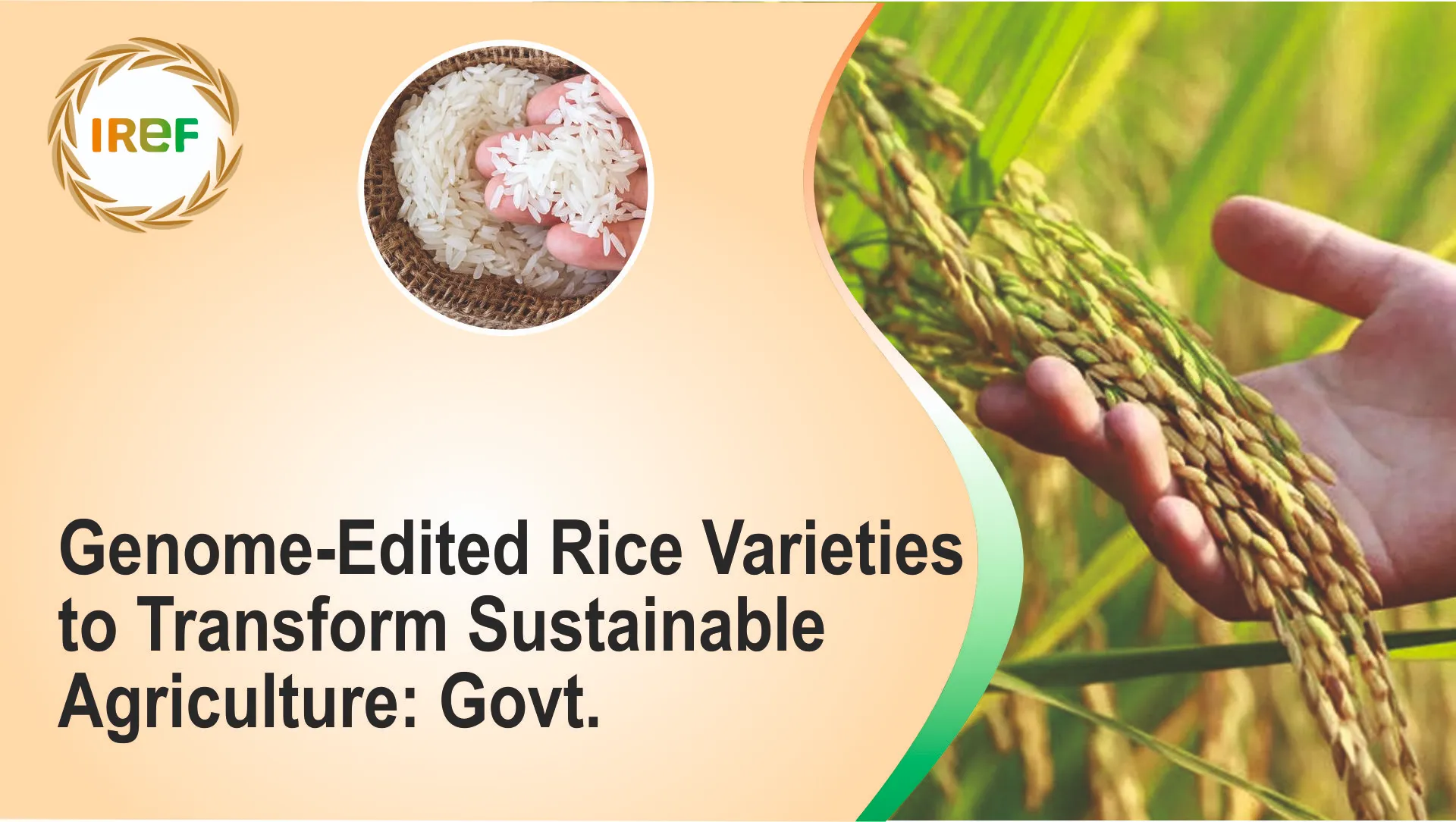Genome-Edited Rice Varieties to Transform Sustainable Agriculture: Govt.

The government has said that genome-edited rice varieties will play a transformative role in sustainable agriculture. Bhagirath Choudhary, Union Minister of State for Agriculture and Farmers’ Welfare, wrote a reply in the Lok Sabha on Tuesday in which he stated that the genome-edited rice variety DRR Dhan 100 (Kamala) gives 20-25 per cent higher grain yield, and matures 20-25 days. Not only this, but another genome-edited variety, Pusa Rice DST 1, has also demonstrated a strong tolerance to coastal and inland salinity by saying: “Both these varieties help save water and fertilisers and are suitable in stressed ecologies, which will transform the scenario of sustainable agriculture.”
Attributes of Genome-Edited Rice Varieties
He added that the genome-edited rice varieties are climate resilient and contribute significantly to sustainable agriculture. Notably, DRR Dhan saves one to two irrigation cycles and has shown moderate tolerance against drought. Pusa DST Rice 1 has shown strong tolerance (10-30 per cent yield advantage over parent variety) under inland salinity, alkalinity and coastal salinity areas. Both these varieties have been identified for Andhra Pradesh, Telangana, Karnataka, Tamil Nadu, Puducherry, Kerala, Chhattisgarh, Maharashtra, Madhya Pradesh, Odisha, Jharkhand, Bihar, Uttar Pradesh and West Bengal.
The minister replied to another question, citing the key issues raised by farmers during the Viksit Krishi Sankalp Abhiyan that were quality, timely availability and access to different agricultural inputs like seeds, including those of climate resilient varieties, fertilisers and pesticides.
About Mango Production
Answering the question on Mango production, Agriculture Minister Shivraj Singh Chauhan stated India is the largest producer of mango in the world, with production of 228.37 lakh tonnes. This is around 40-45 per cent of world mango production, he noted. Moreover, the government is emphasising scientific cultivation and research of mango, marketing and export and value addition. The Indian Council of Agricultural Research (ICAR) has dedicated organisations for research and development related to mango, which have developed numerous varieties for commercial cultivation in India. At present, ICAR is also running 23 All India Coordinated Research Project (AICRP) Centres in mango. Lastly, he said in collaboration with ICAR, State agricultural universities are also conducting research work related to production, post-harvest management and value addition in mango.